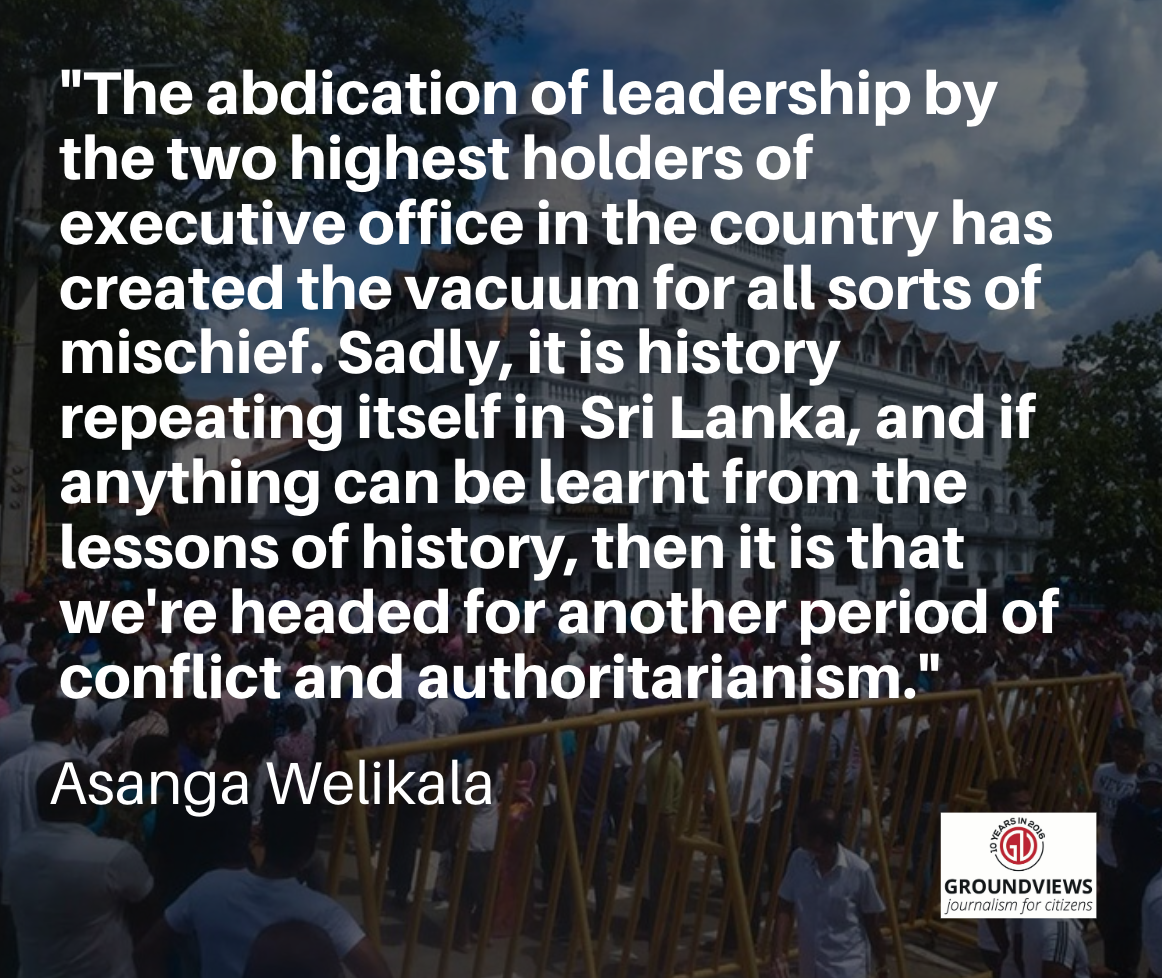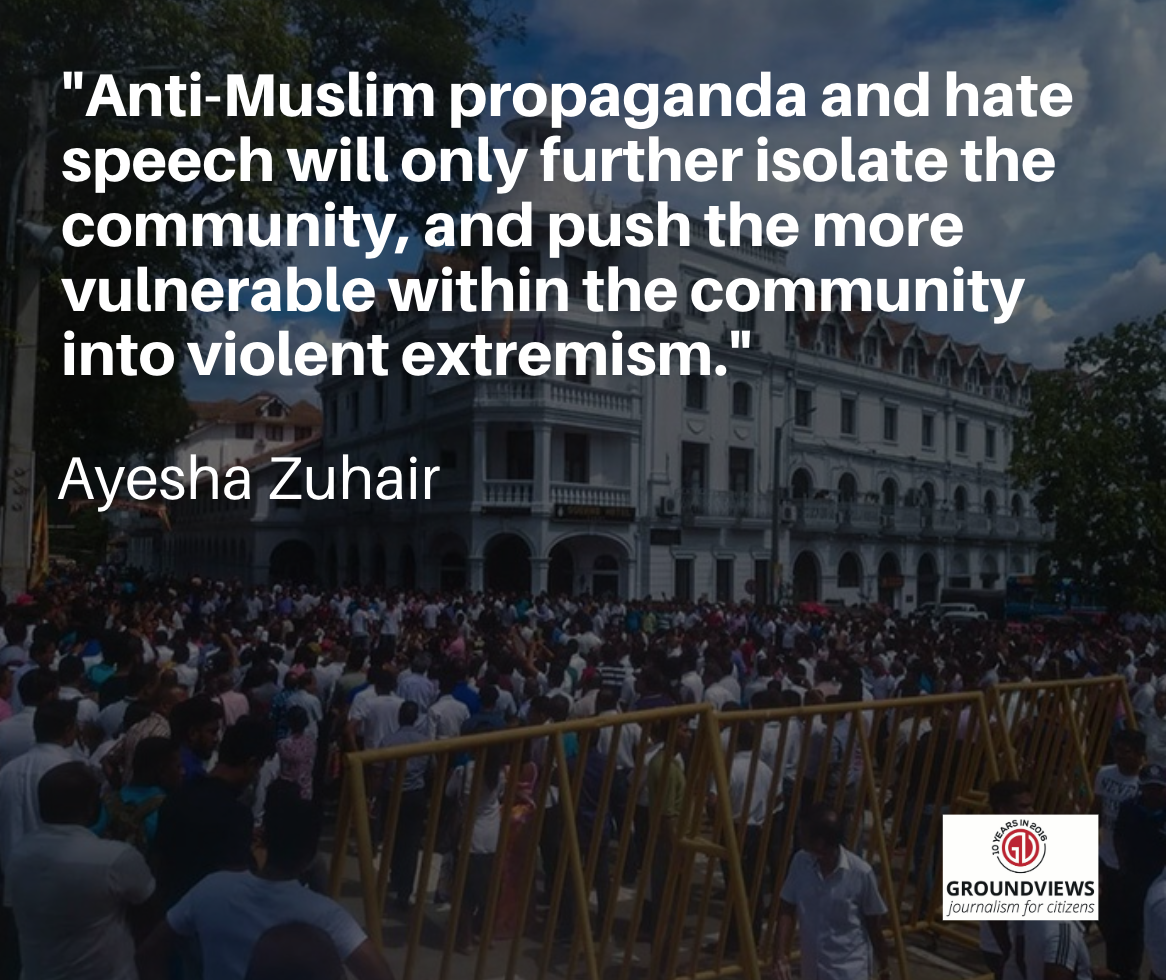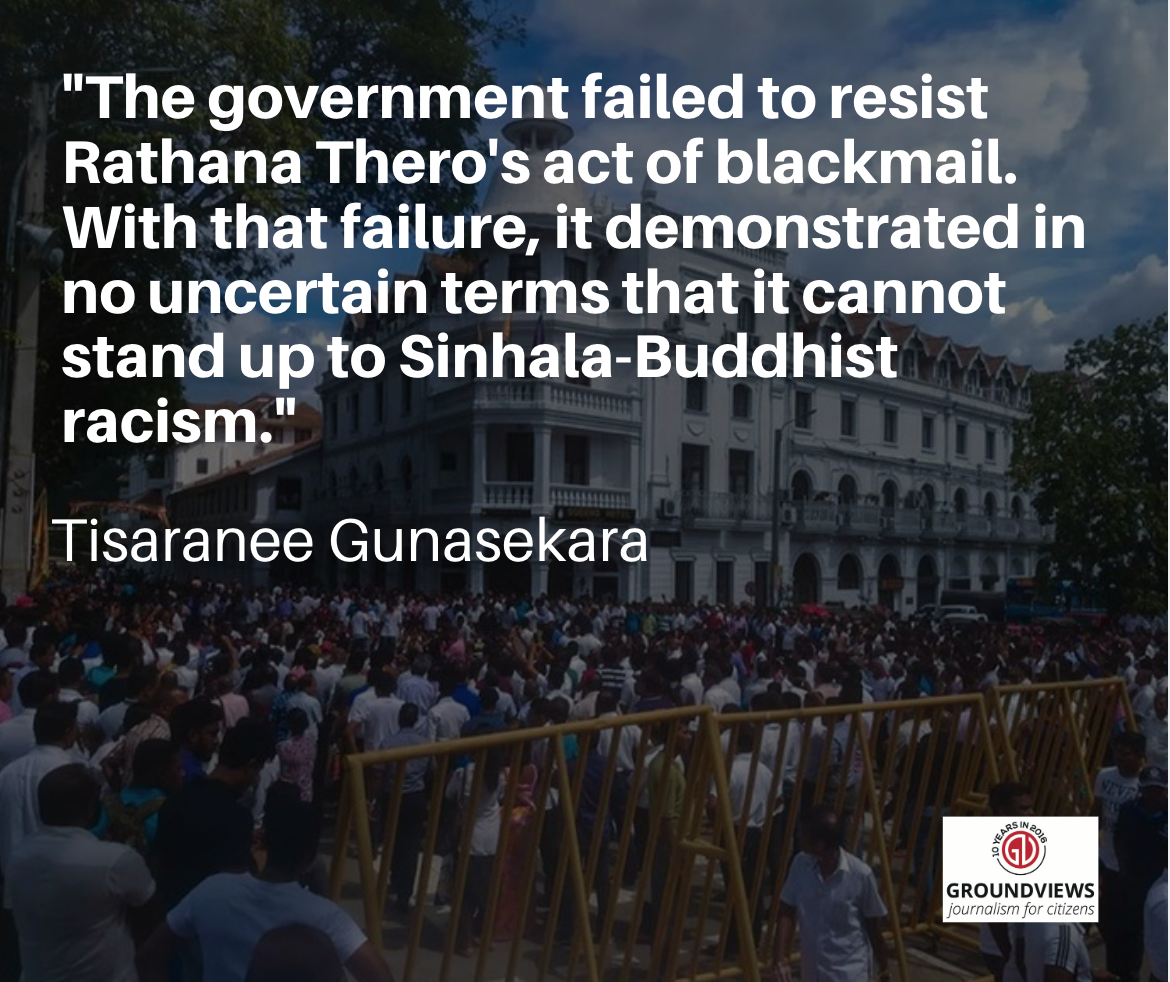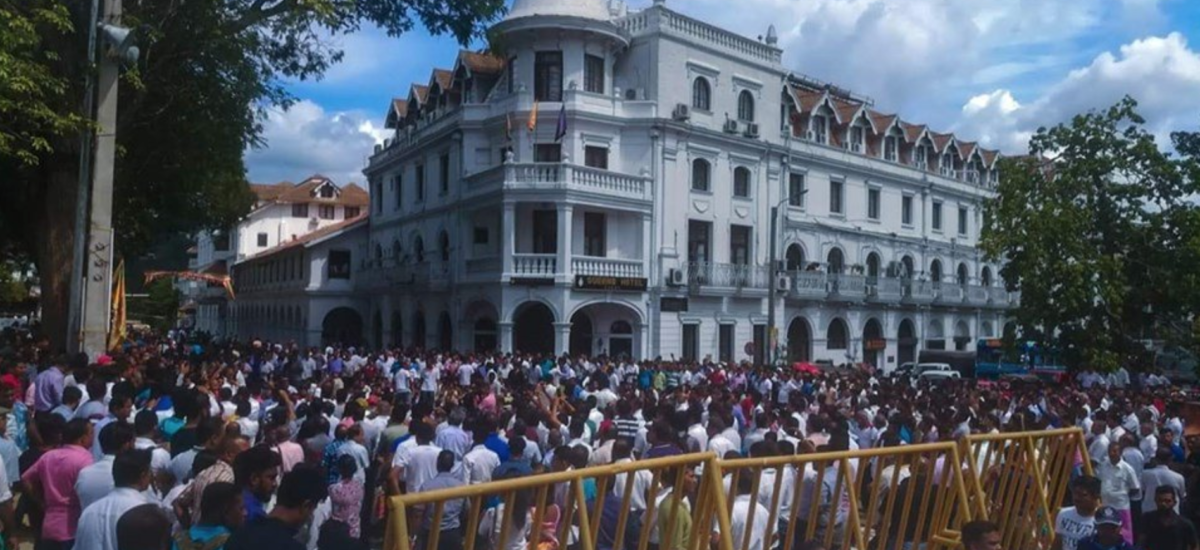Featured image courtesy Sri Lanka Tweet
On May 31, Parliamentarian Athuraliye Rathana Thero began a death fast in front of the Sri Dalada Maligawa in Kandy. His demand: the resignation of Minister Rishad Bathiudeen and Governors Azath Salley and M L A M Hisbullah from their posts.
On June 3, crowds began gathering at the Dalada Maligawa. General Secretary of the Bodu Bala Sena, Gnanasara Thero issued a deadline of 12 pm for Athuraliye Thero’s demands to be met.
As tensions rose, Governors Hisbullah and Salley resigned from their posts and the monk called off his fast.
However, by the end of the day, 9 Muslim MPs resigned from their portfolios, although they said they would continue to sit as backbencher MPs. The action was said to be taken in order to facilitate investigations into the Easter Sunday bombing attacks.
Groundviews compiled initial reactions from politicians, lawyers and civil society.
Lecturer in Public Law, University of Edinburgh, Asanga Welikala said that politically the events on June 3 sent a bad message about the “near-complete dysfunctionality at the heart of the government” post Easter Sunday.

Speaking about Rathana Thero’s actions, Welikala noted that there could be no constitutional democracy if religious leaders could dictate terms to a democratically elected and lawfully constituted government.
While there were certain inspirational exceptions, the Buddhist clergy in general throughout Sri Lanka’s history as an independent country had played “one of the most regressive, militant, undemocratic, intolerant, and lawless roles in public life,” he added.
“At every turn, they have acted to thwart democratic nation-building in a plural society and ensured that our diversity has become our central weakness rather than the source of our unity and strength. They are a self-serving vested interest that is a threat to constitutional democracy, just as much as is our corrupt political class, crony capitalists, and private mainstream media moguls are.” Welikala said.
The Muslim MPs withdrawal from their portfolios recalled other foreboding moments in history such as when the Bandaranaike-Chelvanayakam Pact was torn up or when the Federal Party was forced to walk out of the Constituent Assembly – which had terrible consequences for peace and democracy, he added.
Researcher Ayesha Zuhair said that the resignation of Muslim Cabinet, State and Deputy Ministers averted a potential bloodbath which would have ensued if the march from Kandy to Colombo, held despite Emergency Regulations prohibiting gatherings had proceeded.
“Since April 21, many Muslims have endured alarming levels of stigmatisation and harassment due to the actions of a few dastardly terrorists. What should have been treated as a colossal national security failure quickly turned into a witch-hunt against Sri Lankan Muslims; a community that has shown admirable restraint even in the face of severe provocation,” she said.
As such, the joint resignations signified resistance to the not-so-covert attempts to subvert the rule of law and due process in this country.
“The Easter Sunday attacks have rightly received universal condemnation. But all attempts to exploit the attacks to aggravate ethnic tensions will result in immeasurable damage to the country and its international reputation. Sri Lanka, which is neck-deep in debt, can ill afford even a single day of ethno-religious conflict.”
Zuhair added that it was also vital to recognise that the country cannot win the war on terrorists – who had abused Islam – without winning the hearts and minds of the Muslim community.

Political analyst Tisaranee Gunasekara highlighted that Athuraliye Rathana Thero had been speaking of turning Sri Lanka into a saffron-robed ocholocracy; a mob rule led by monks before beginning his fast.

With this failure, the government had created a situation where universal franchise was devalued and democracy profaned.
“If not contained, this trend can contribute significantly to the unraveling of the already threatened ethno-religious fabric in Sri Lanka. Giving into Rathana Thero’s demands is not the end, but the beginning. The Government’s supine response has strengthened majoritarian extremism,” she said.
Groundviews compiled more reactions on Twitter.
Click here to view the Twitter moment, or scroll below:
Held to Ransom: Capturing the Fallout of a Fast Unto Death

